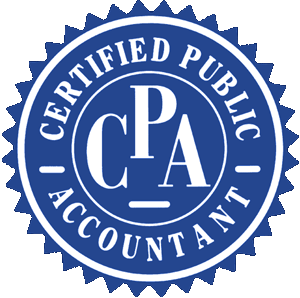Becoming a Certified Public Accountant (CPA) is a significant milestone for many accounting professionals. The CPA designation is recognized globally and signifies a high level of expertise and professionalism in the field of accounting. One of the most critical steps in achieving this designation is passing the CPA Exam. This article delves into the essential aspects of the CPA Exam, from understanding its importance to effective preparation strategies.
Understanding the CPA Exam: A Crucial Step for Aspiring CPAs
The CPA Exam is a rigorous assessment designed to ensure candidates possess the necessary knowledge and skills to perform the duties of a CPA. It is administered by the American Institute of Certified Public Accountants (AICPA) and is a mandatory requirement for licensure in the United States. The exam tests a wide range of accounting topics, including auditing, financial accounting, regulation, and business concepts.
Passing the CPA Exam is not just about acquiring a certification; it opens doors to numerous career opportunities in various fields such as public accounting, corporate finance, and government. It signifies a commitment to the profession and adherence to the highest standards of ethical and professional conduct.
The importance of the CPA Exam cannot be overstated. It ensures that only qualified individuals are granted the CPA designation, thereby maintaining the integrity and trustworthiness of the accounting profession. Employers and clients alike rely on CPAs to provide accurate and reliable financial information, making the exam a crucial filter for the profession.
The CPA Exam is also a benchmark for global recognition. Many countries recognize the CPA credential, making it easier for certified individuals to work internationally. This global recognition enhances career mobility and opportunities for CPAs.
Understanding the CPA Exam is the first step towards becoming a licensed CPA. It requires a significant investment of time, effort, and resources, but the rewards are well worth it. Aspiring CPAs must be prepared to dedicate themselves to the rigorous study and preparation required to pass the exam.
Eligibility Criteria: Who Can Take the CPA Exam?
Before you can sit for the CPA Exam, you must meet certain eligibility criteria. These criteria vary by state, but there are some common requirements that most jurisdictions adhere to. Generally, candidates must have a bachelor’s degree in accounting or a related field from an accredited institution.
In addition to a degree, most states require candidates to have completed a specific number of credit hours in accounting and business courses. This typically includes coursework in financial accounting, auditing, taxation, and business law. Some states also require candidates to have a certain amount of work experience under the supervision of a licensed CPA.
It’s important to check the specific requirements for the state in which you plan to become licensed. Each state’s Board of Accountancy sets its own rules and regulations, and meeting these requirements is essential for eligibility to take the CPA Exam.
International candidates who wish to take the CPA Exam must also meet similar educational and experience requirements. In some cases, additional evaluations of foreign credentials may be necessary to determine equivalency with U.S. educational standards.
Understanding the eligibility criteria is crucial for planning your path to becoming a CPA. It ensures that you meet all necessary prerequisites and can focus on preparing for the exam itself. Many candidates find it helpful to consult with academic advisors or professional mentors to ensure they are on the right track.
Meeting the eligibility criteria is the first step in your journey to becoming a CPA. Once you have confirmed that you meet these requirements, you can begin the process of applying for the exam and preparing for the rigorous assessment ahead.
Exam Structure: Breaking Down the Four Sections of the CPA
The CPA Exam is divided into four sections, each designed to test different areas of accounting knowledge and skills. These sections are Auditing and Attestation (AUD), Business Environment and Concepts (BEC), Financial Accounting and Reporting (FAR), and Regulation (REG). Each section is a four-hour exam, making the total exam duration 16 hours.
The Auditing and Attestation (AUD) section covers topics such as auditing procedures, generally accepted auditing standards, and other standards related to attest engagements. It also tests the ability to plan and perform audits, evaluate evidence, and prepare reports.
The Business Environment and Concepts (BEC) section includes topics related to general business environment and business concepts. This section tests knowledge of corporate governance, economic concepts, financial management, information technology, and operations management.
The Financial Accounting and Reporting (FAR) section is one of the most comprehensive sections of the CPA Exam. It covers financial accounting concepts and standards for business enterprises, not-for-profit organizations, and governmental entities. Topics include financial statement preparation, accounting for specific transactions and events, and accounting and reporting for governmental and not-for-profit entities.
The Regulation (REG) section focuses on federal taxation, ethics, professional and legal responsibilities, and business law. This section tests knowledge of federal tax procedures and accounting issues, including individual, entity, and property transactions.
Understanding the structure of the CPA Exam is crucial for effective preparation. Each section requires a different approach and study strategy. Familiarizing yourself with the content and format of each section will help you develop a comprehensive study plan and increase your chances of success.
Preparation Tips: How to Study Effectively for the CPA Exam
Preparing for the CPA Exam requires a strategic and disciplined approach. One of the most effective ways to study for the exam is to create a detailed study plan that outlines your study schedule, goals, and resources. This plan should be realistic and flexible, allowing you to adjust as needed based on your progress and understanding of the material.
Utilizing quality study materials is essential for effective preparation. There are numerous resources available, including textbooks, online courses, and practice exams. One highly recommended resource is the CPA Test Bank, which offers a comprehensive collection of practice questions and exams designed to simulate the actual CPA Exam experience.
Practice exams are particularly valuable because they help you become familiar with the format and types of questions you will encounter on the actual exam. They also allow you to assess your knowledge and identify areas where you need further study. Consistent practice with these exams can build your confidence and improve your test-taking skills.
Joining a study group can also be beneficial. Collaborating with peers who are also preparing for the CPA Exam can provide support, motivation, and different perspectives on complex topics. Study groups can also help you stay accountable and committed to your study schedule.
Time management is crucial when preparing for the CPA Exam. Balancing study time with work, family, and other responsibilities can be challenging. It’s important to set aside dedicated study time each day and stick to your schedule as closely as possible. Prioritizing your study time and minimizing distractions will help you make the most of your preparation.
Finally, taking care of your physical and mental health is essential during your study period. Regular exercise, a healthy diet, and adequate sleep can significantly impact your ability to concentrate and retain information. Taking breaks and managing stress through relaxation techniques can also enhance your overall well-being and exam performance.
Passing the CPA Exam is a challenging but achievable goal for aspiring CPAs. By understanding the exam’s importance, meeting the eligibility criteria, familiarizing yourself with the exam structure, and employing effective preparation strategies, you can increase your chances of success. The journey to becoming a licensed CPA requires dedication, hard work, and perseverance, but the rewards of achieving this prestigious designation are well worth the effort. For more resources and practice materials, visit CPA Test Bank and take the first step towards your CPA career today.

